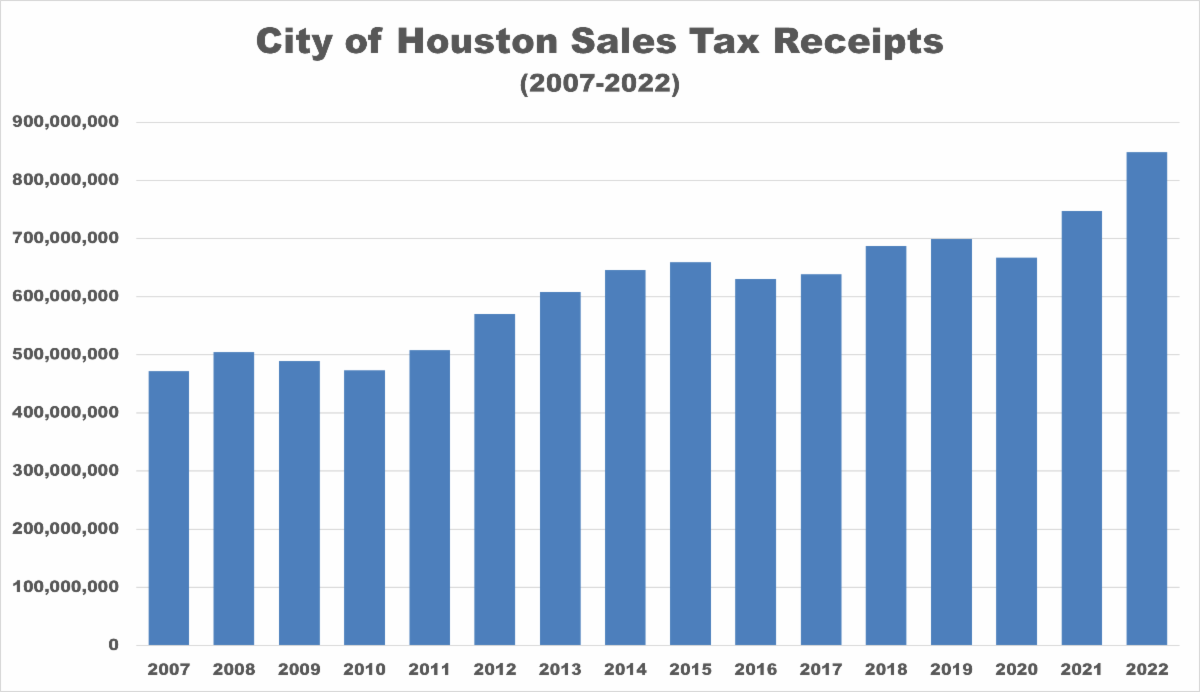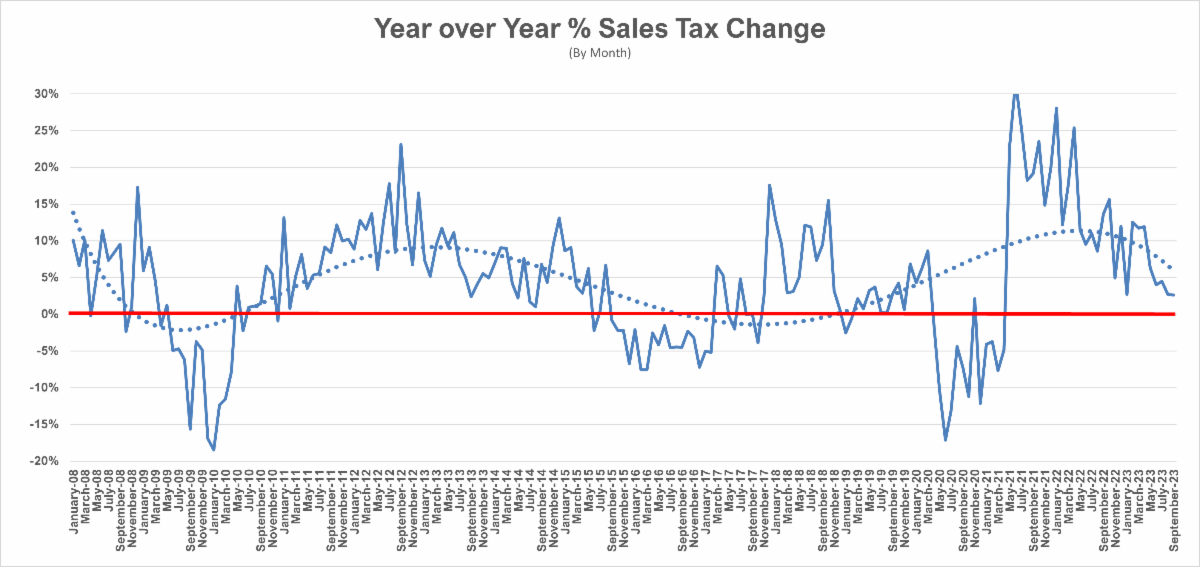After seven years of mostly flattish sales tax receipts, the City of Houston saw double digit increases over the last two years. However, the sales tax receipts have begun to cool and appear to be returning to historical patterns.

Sales tax receipts by a local government generally track very closely with its population and inflation. When the City’s population began to flatline around 2015, so did its sales tax receipts. From 2015 through 2019, the City’s sales taxes increased by only about 1% annually, less than the increase in inflation over that period.
When the pandemic arrived, there was a fear that sales tax receipts would collapse across the country as businesses shuttered. And initially that was the case. The taxes collected on sales in April 2020, fell an unprecedented 17% from a year earlier.1 For the year 2020, sales taxes were down by about 8%.
However, sales quickly rebounded beginning in early 2021, as Houstonians, like many other Americans, went on online shopping binges since they were mostly stuck at home. As a result, sales taxes in the first six months of 2021 were up by 22%.
In 2021, sales tax receipts topped $800 million for the first time in the City’s history, jumping almost $120 million from 2020. The receipts for 2022 were up another $75 million, taking total receipts to $838 million.
Early in 2021, Congress authorized payments to local governments to compensate them for what was an expected loss of revenues. But most local governments, including Houston, did not lose nearly as much revenue as was expected and the federal aid turned out to be a bonanza.
However, the monthly year-over-year increases have been rapidly decelerating in the last few months. So far in 2023, receipts are up this year by a little over 6%, compared to the same time last year. Over the last four months, the year-over-year increase has averaged 3.5%, basically inline in inflation.

Future sales tax revenues are notoriously hard to predict. However, the City is facing some significant headwinds. Its population growth continues to flatline and the Federal Reserve appears intent on slowing the national economy. At least in the short term, our expectations should probably be on the cautious side.

